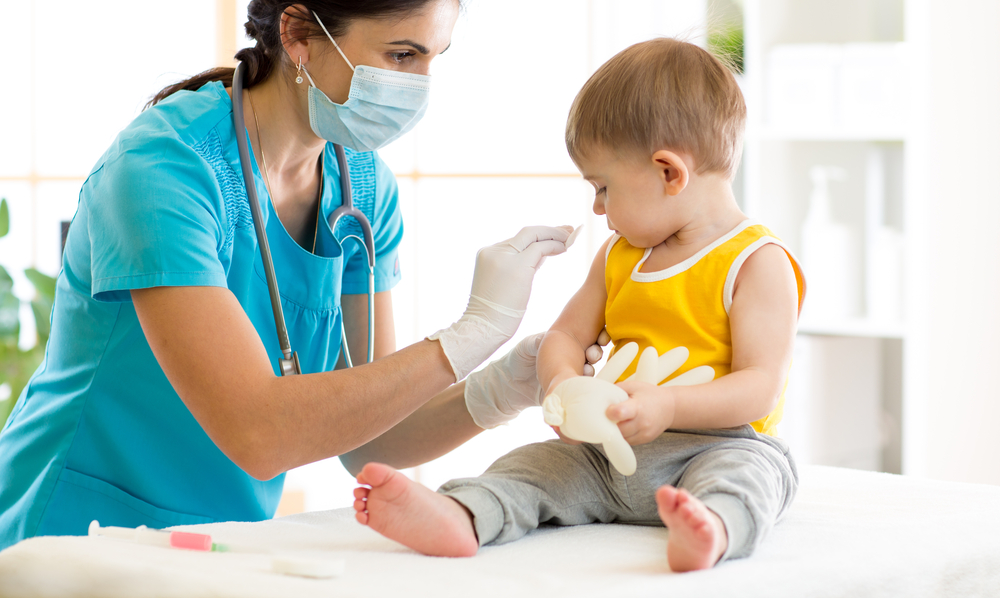Treating Diarrhea and Vomiting in Kids and Babies
:max_bytes(150000):strip_icc()/sick-kid-with-mom-588455603df78c2ccd869257.jpg)
A child who is vomiting and/or has diarrhea doesn’t usually need medication. Most children with an illness that causes vomiting or diarrhea will feel better after a few days.
For the most part, children who are vomiting and/or have diarrhea need basic treatments like fluids and rest. For severe vomiting, your child’s healthcare provider may also prescribe an anti-vomiting medication.
This article goes over some of the treatments for vomiting and diarrhea in children, and when you should see a healthcare provider.
Treatments for Vomiting and Diarrhea
In general, when your child is vomiting a lot or has diarrhea from something like a stomach virus (gastroenteritis), you should:
- Give them fluids to avoid dehydration or help them get rehydrated.
- Resume feeding to provide nutritional support once the child is able to keep fluids down.
- Avoid antibiotics as a treatment, because gastroenteritis is commonly caused by viruses, which aren’t treated with antibiotics.
- Avoid antidiarrheal medications in young children.
- Try Zofran, an anti-vomiting medicine for some kids who are vomiting to help avoid dehydration.
Hydrating Children With Fluids
It is important for a child with vomiting and diarrhea to remain hydrated. Vomiting and diarrhea can cause them to lose more liquid than they take in.
Many parents give juice or Gatorade to a child who has been vomiting, but these are not the best choices. The high amount of sugar and lack of sodium in fluids like apple juice might actually make your child worse. Similarly, Gatorade’s high sugar content makes it controversial when used for diarrhea or vomiting.
Oral Rehydration Solution
The World Health Organization Oral Rehydration Solution (WHO-ORS) is the gold standard for managing acute gastroenteritis, and many parents and pediatricians use commercially available solutions such as Enfalyte or Pedialyte. Oral rehydration solutions have a balanced mix of sugar and electrolytes.
Oral rehydration solutions are available in most supermarkets and drug stores without a prescription and come in good-tasting flavors. Your child might prefer some flavors over others.
If your child is vomiting frequently, limit fluids to a teaspoon at a time, using a syringe, medicine dropper, or a teaspoon to measure the dose. You can gradually increase the amount you give at each time as your child begins to keep it down.
A good starting point is a teaspoon (5 ml) or tablespoon (15 ml) of fluid every five minutes for the first hour, increasing to a few tablespoons at a time once the vomiting decreases and your child is keeping the fluids down well.
Sipping on cola may help to ease nausea. It contains phosphoric acid, which can help quell nausea. Ginger tea may also help.
If your child can’t or won’t drink anything else, a Pedialyte popsicle can be a good alternative to prevent dehydration.
The total amount of fluids you should aim to give depends on how dehydrated your child is.
- Minimal or no dehydration: Children with no signs of dehydration should receive 2-4 ounces of ORS for each episode of vomiting or diarrhea if they are less than 22 pounds and 4-8 ounces if they are over 22 pounds. One ounce is the same as 30 ml, so even if you are just giving your child one tablespoon (15 ml) every five or 10 minutes, you can very quickly get up to 4 ounces (120 ml).
- Mild to moderate dehydration: Children with decreased urine output, dry mouth, decreased tears, and a 3-9% loss of body weight should be considered mildly to moderately dehydrated. Give 25 to 50 ml (a little less than 1 to 2 ounces) of ORS per pound of body weight over 2-4 hours. They will also need 2-4 ounces of ORS for each episode of vomiting or diarrhea if they are less than 22 pounds or 4-8 ounces of ORS for each episode if they are over 22 pounds.
- Severe dehydration: Children with greater than a 9% loss of body weight, fast heart rate, deep breathing, parched mouth, deeply sunken eyes, absent tears, minimal urine output, and cold mottled extremities, will need immediate medical attention and IV fluids. They can then be changed to ORS once they start improving.
Spit-up vs. Vomit
The main difference between spit-up and vomit is the force with which it is expelled from the body. Spit-up flows out easily, usually with a burp, and dribbles out the mouth. Vomiting occurs with force and shoots out. Vomit can also sometimes have an unpleasant odor.
Diet Changes
A BRAT diet (bananas, rice, applesauce, and toast) is sometimes suggested for children with gastrointestinal illnesses, although many pediatricians no longer recommend the BRAT diet due to its low nutrient content. However, adding some of these foods to your child’s diet as they recover can help with diarrhea symptoms.
Many children crave water and crackers or other bland foods when they are sick, and it’s usually okay for them to take sips and eat small bites whenever they feel like they can.
If your child just has a few episodes of diarrhea and/or occasional vomiting, you should:
- Continue to breastfeed or formula feed; don’t water down formula.
- Avoid dairy for a few days.
- Avoid foods with a lot of added sugars, like fruit drinks, fruit juice, and carbonated soft drinks.
Once they start to feel better, your child can get back to an age-appropriate unrestricted diet.
Medications for Vomiting or Diarrhea in Kids
In almost all cases, medication should not be given to treat vomiting or diarrhea in a child. Symptoms like fever or pain, if they occur alongside nausea and vomiting, can be treated with Tylenol (acetaminophen).
Over-the-counter medications to treat nausea like Dramamine (dimenhydrinate) are not effective for treating vomiting in children with gastroenteritis and should not be given.
Never use the OTC antidiarrheal medication Imodium (loperamide) to treat diarrhea in children, since this medication is associated with severe side effects including abdominal swelling, breathing problems, heart problems, and death.
Severe cases of nausea and vomiting are sometimes treated with a prescription medication called Zofran (ondansetron). This medication is usually only prescribed if your child has severe vomiting, is dehydrated, and is unable to keep oral rehydration solution down.
When to Call a Healthcare Provider
Gastroenteritis can usually be treated at home, but you may need to call your child’s pediatrician if your child:
- Is less than 6 months old
- Refuses to drink Pedialyte or other oral rehydration solution
- Continues to vomit frequently
- Has severe dehydration or fever
- Has a change in behavior (like being lethargic or irritable)
- Has bloody diarrhea
- Seems to be getting progressively worse
- Can’t be cared for at home
When to Worry About Diarrhea in a Baby
Babies’ stools are naturally loose. Diarrhea occurs when there is a sudden increase in the number or looseness of stools. In general, three or more watery stools are considered diarrhea.
Diarrhea in a baby is concerning because of the risk of dehydration. Signs of dehydration include reduced urine output, dark urine, very dry mouth, and no tears.
Call the pediatrician if your baby shows symptoms of dehydration, has bloody stool, vomits three or more times, has 10 or more watery stools in 24 hours, or has a fever over 100.4 degrees F in babies less than 12 weeks old or over 104 degrees F in older babies. You should also call if diarrhea lasts more than two weeks or if loose stools are a frequent problem.
Summary
Most cases of diarrhea and vomiting in children will resolve after a couple of days. While your child is recovering, it’s important to make sure they stay hydrated. Oral rehydration solution like Pedialyte is the best fluid to give a child with a stomach illness.
Medication is not usually advised for a child with vomiting and diarrhea. Don’t use over-the-counter medications. See your child’s healthcare provider if they have signs of dehydration or if they are having trouble keeping down fluids and seem to be getting progressively worse.
link






